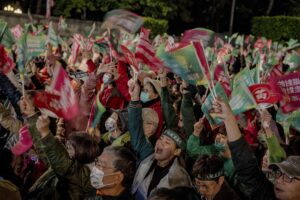
Is Democracy Surviving the “Year of Elections”?
Millions of voters are casting ballots in a string of elections across the globe. At the midyear point, how well is democracy holding up?

Millions of voters are casting ballots in a string of elections across the globe. At the midyear point, how well is democracy holding up?
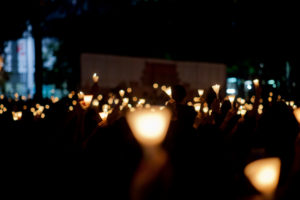
On 4 June 1989, hundreds, perhaps thousands, of peaceful pro-democracy protesters were killed when the Chinese military opened fire on them in Tiananmen Square. The following are some of our most powerful essays on the meaning of the massacre.
Reports on elections in Chad, the Dominican Republic, Iceland, India, Iran, Lithuania, Mexico, North Macedonia, Panama, South Africa, and Togo.

The African National Congress can no longer call all the shots, and opposition parties will have more sway. Will this lead to a more inclusive democracy or gridlock and division?

She was just elected Mexico’s first woman president in a landslide. The future of Mexico’s democracy rests on whether she can break from her predecessor’s ways and carve her own democratic path.
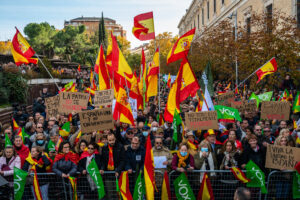
A week from today, voters across all 27 European Union countries will head to the polls to elect the next European Parliament. The following Journal of Democracy essays chronicle the far right’s rise across Europe and consider the dangers it presents in the region and beyond.
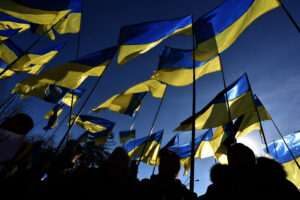
Ukrainians’ first priority is defending their country from Russia’s invasion. They would rather hold fair, free, and inclusive elections than vote for the sake of voting.
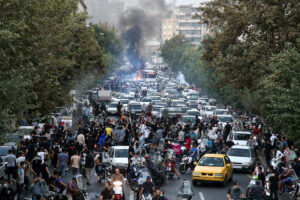
Iran’s president, Ebrahim Raisi, died in a helicopter crash on Sunday. The mullahs may become more repressive in the lead up to the next presidential election. Read about Iran’s most recent wave of unrest, and explore why it may “only [be] a matter of time before a new wave erupts.”

“Electoral bonds” were supposed to make political contributions transparent. Instead they became a form of legalized corruption, funneling huge sums and making the political playing field even more uneven.

On Tuesday, Georgia’s Parliament passed a controversial new law that would brand NGOs and media organizations receiving foreign funding as “foreign agents.” Countries across the globe are following the Russian model and painting liberal-democratic values as malign foreign interference. Read about the strategies autocrats are devising to repress civil society and stifle dissent.

A string of Kremlin-backed military coups have brought a collection of juntas to power. The West should resist calls to placate them, and instead stick to its values and push for a return to civilian rule.

Coups are a direct assault on democracy. And militaries can be pivotal to whether a coup succeeds or fails. The following Journal of Democracy essays examine what makes coups more likely, and how democracies can keep the military brass from seizing power.

The country is at risk of collapsing into a full Russian autocracy, and Georgians understand it as a make-or-break moment. The strength and resolve of the country’s civil society will decide the outcome.

If you want to understand why generals support a presidential power grab, then you need to understand the logic that motivates them. Why they leave the barracks — and what we must do to get them to stand down.

Vladimir Putin has become a one-stop shop for authoritarians around the world, providing them whatever they need to advance their cause. Democracy’s defenders don’t get the same support — but it’s time for that to change.
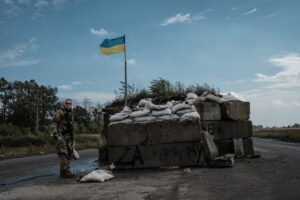
Billions in much-needed American military aid are now headed for Ukraine. The following Journal of Democracy essays demonstrate what it will take to reverse the course of this war of attrition, and why this struggle is a “contest between democracy and dictatorship.”

The danger is greater than the rise of far-right parties. In fact, there is a risk that in their eagerness to contain the far right, European leaders may do greater damage to democracy itself.

Cash is king, even if you are an activist leading a democratic movement against some of the world’s worst dictators. That’s why Bitcoin has quickly become the currency of choice for dissidents working everywhere.
Reports on elections in Croatia, Kuwait, the Maldives, Senegal, Slovakia, the Solomon Islands, and South Korea.
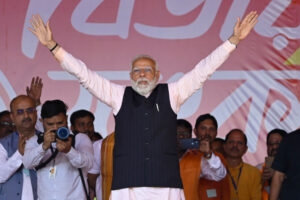
Voters are choosing more than the parties and politicians who will represent them. It is something more basic: The future of India’s secular democracy is on the ballot.